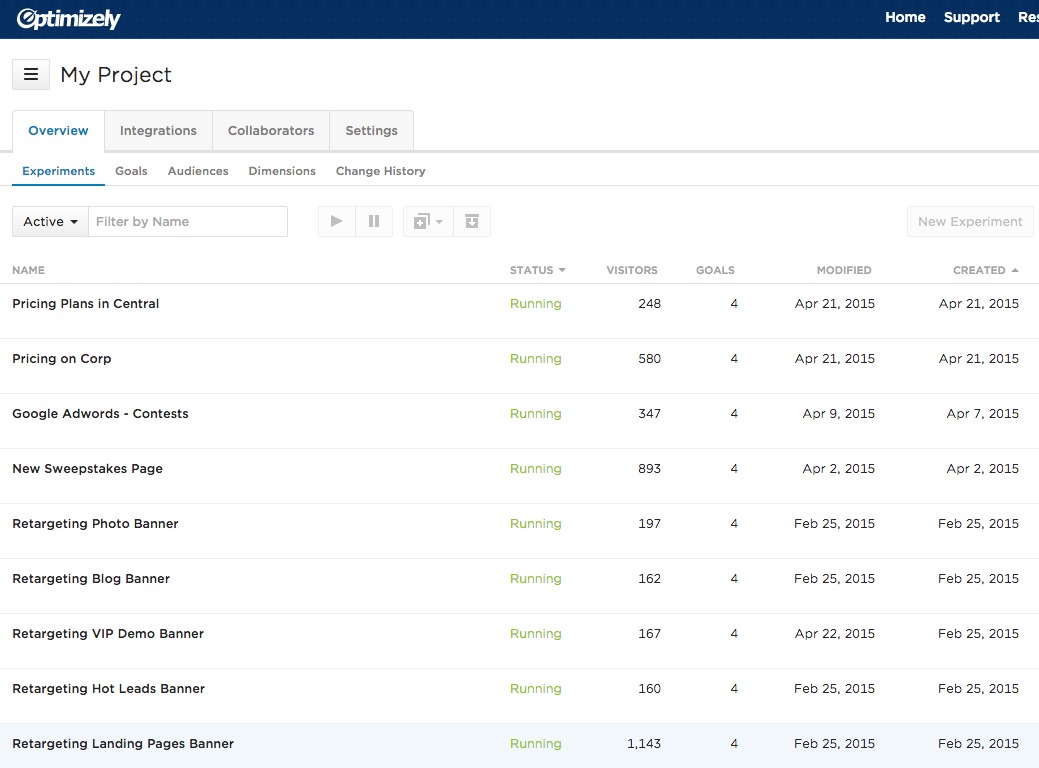You’ve probably heard of growth hacking. You may think it’s just a buzzword, startup jargon used only in San Francisco by guys with $2,000 suits and bare feet.
You’d be wrong.
Growth hacking has become an essential element of starting and growing a new business.
At Wishpond, we all play a role in growth hacking. For many startups it’s become a mindset rather than a role or responsibility of one person. We’re all growth hackers.
But what exactly is growth hacking?
Neil Patel’s definition of growth hacking is as good as I’ve ever seen. Check it out:
Every decision that a growth hacker makes is informed by growth. Every strategy, every tactic, and every initiative, is attempted in the hopes of growing. Growth is the sun that a growth hacker revolves around. Of course, traditional marketers care about growth too, but not to the same extent. Remember, the power of a growth hacker is in their obsessive focus on a singular goal. By ignoring almost everything, they can achieve the one task that matters most early on.
And by growth, of course, we mean that immediate, initial “boom” that takes your business off the ground.
Think of growth hacking like a plane taking off: All the energy is in getting airborne. After that you’re just gliding.
This article will break down the four initial steps of growth hacking a young business, and then give you 5 tips that worked to help our startup grow 100% every year since 2010.
Step #1: Break down your primary growth goals into realistic but accessible smaller goals
Rather than focusing all your attention on penetrating a new audience or releasing a life-changing product development, a growth-hacking marketing team (or individual) will hone in on a single, short-term, achievable but ambitious goal.
Actionable goals Wishpond has had in the past:
- Driving 10,000 visitors to your business’ product page or pages
- 150 Leads Generated from an email-gated piece of content through advertising, social media and influence marketing before the end of the month
- Increasing blog traffic 10% by the 30th of April
- Driving the conversions of 5 bounced site visitors with remarketing by the end of a two week sprint
Many growth hackers work in terms of short sprints or bite-sized pieces. Thinking too big (like a goal of “taking this company from minimum-viable-product to IPO) can paralyze even the most experienced marketer.
Step #2: Measure, Measure, Measure
You’ll notice that a huge part of Step #1 is knowing your numbers. Growth-hackers are all about numbers (and for good reason).
While growth hackers know that responding to qualitative data (feedback from clients, customer reviews, and support chats, for instance) is vital to a successful long-term marketing strategy, they prioritize growth over feedback. Qualitative data can wait for after your site has traffic, your product is being used or purchased, and people know you exist.
Actionable steps we’ve taken to measure our marketing efforts:
- Set up Google analytics as soon as your domain name is set in stone. If you’re confused by anything, Google’s tutorials are fantastic.
- Go beyond the basics: Track daily traffic/page (of course) but also conversion goals, demographics, traffic sources, time-on-page, mobile usage and events (like sign-ups, subscriptions, etc)
- Once you understand your way around an analytic platform, go beyond GA. Wishpond uses Woopra, which allows us to see our traffic with more specificity. We can apply labels to our traffic based on set criteria (like “hot lead”, “power user” etc) and easily create funnels to determine how many people are completing an initial action followed by a second and third conversion.
For instance, the image below shows us the proportion of Wishpond’s free account signups who go on to draft a campaign, customize that campaign, go to our plans page, billing page, and (at last) complete an upgrade from free to paid account:

Step #3: Get Creative with your Funnel
This is the growth hacking step which most often flummoxes people: the creativity stage.
It’s tough for me to say exactly what you need to do to optimize your lead generation funnels, boost customer acquisition, create brand awareness and develop relationships with prospective and existing clients.
You may have awesome ideas that I (or any other growth hacker) have never thought of. Your business may have an entirely different target market than mine. You may find your business doesn’t need content marketing or social media and can get by just fine with email, presentation tools and advertising. Or perhaps your business devotes all of its marketing efforts on Pinterest, Instagram and Facebook. I can’t know, and can’t tell you (though I’d be more than happy to start a conversation about it in the comment section below).
Your business is your own business.
Though I guess I could give you some key terms and broad stroke strategies you may want to investigate further…
Top of Funnel:
- Implement SEO best practices on your webpage and content to help your business get noticed.
- Allot budget toward online advertising, both Adwords and Facebook Ads. Start slow and commit once proven.
Middle and Bottom of Funnel:
- Optimize your site’s landing pages so traffic generated by advertising, SEO, and content converts optimally
- Invest in remarketing to recapture as much of your bounced site traffic as possible
- Optimize your marketing emails to nurture leads toward a final conversion with a drip email campaign or high investment of time.
Check out these bottom-of-funnel marketing tactics for more ideas.
I’ll leave it there. A growth hacker’s responsibilities generally end once leads are converted to sales (though I’d recommend you invest in customer service and content marketing/education to retain existing customers).
Step #4: Test, Rinse, and Repeat
Growth hackers test everything. In the creativity stage above I mentioned that some businesses may be better off devoting their entire growth hacking budget to social media while others may be better off avoiding it entirely.
Some stuff is common sense (like your corporate accounting firm probably shouldn’t invest heavily in snapchat marketing), but the mass majority of marketing strategies and hypotheses need to be tested before thrown out with the trash, or adopted across the board.
Wishpond, for instance, is currently running 9 A/B tests on our site. Everything from our pricing page (which I’m sure you recognize is an important one) to the individual remarketing ads we’ve implemented to target hot leads. This frequency of testing is pretty typical for us…

I don’t need to go (I hope) too deeply into the importance of testing your marketing strategies before committing to them, but if you are curious about growth hacking tests you can implement on your own website, Wishpond has put together 50 A/B Split Test Conversion Optimization Case Studies to inspire you.
5 Top Growth Hacking Tips That Work For Us
1. Focus more on generating leads than generating fans
For a business like ours (and possibly yours) we’ve found recently that there’s more return from people who regularly read our content and are actively looking to be educated about marketing strategy than there is from a social media Following.
2. Focus on top-of-funnel before venturing downwards
For us, focusing on driving blog traffic, lead generation, brand awareness and top-of-funnel strategies drove more success than investing considerable time and energy into nurturing and middle-of-funnel stuff (especially when we had a smaller team and budget).
3. Focus on trying before proving and proving before adopting
Okay, this is kind of a confusing one, I get that. I just got done saying your business needs to test everything. Here’s the subtext of that: you need to try a strategy before you can prove whether or not it works, and you need to prove whether or not it works before you can adopt it fully. Mark Zuckerberg referred to this as “move fast and break stuff”. I prefer “throw that vase against the wall and, if it shatters, it wasn’t a very good vase.”
4. Focus on short meetings and long test periods
If your business is in the growth hacking stage, you’re not a corporation. Don’t act like one. Keep your sit-down meetings short. Come up with ideas, discuss briefly whether or not they’re terrible, and then implement the ones that aren’t. Repair on the fly (for Wishpond, that usually meant 3am…) And remember, for most growth hacking strategies (unless you, magically, have huge traffic right off the bat) you’re not going to know what’s working and what’s not for at least a few months.
5. Focus on a few good people before filling positions you think are empty
Nothing wastes a startup’s budget like salary. If you, your co-founder and your web developing cousin in Wichita can’t get it done, consider contract work or freelancers before hiring a full-timer.
Conclusion
I said in the introduction that all of Wishpond’s marketing team consider themselves growth hackers. Granted, we all have our individual, position-based objectives, but we’re all focused intensely on a single goal: let’s grow this thing until it touches the clouds and breaks through them.
Any questions? Get the conversation started below.



